- About MAA
- Membership
- MAA Publications
- Periodicals
- Blogs
- MAA Book Series
- MAA Press (an imprint of the AMS)
- MAA Notes
- MAA Reviews
- Mathematical Communication
- Information for Libraries
- Author Resources
- Advertise with MAA
- Meetings
- Competitions
- Programs
- Communities
- MAA Sections
- SIGMAA
- MAA Connect
- Students
- MAA Awards
- Awards Booklets
- Writing Awards
- Teaching Awards
- Service Awards
- Research Awards
- Lecture Awards
- Putnam Competition Individual and Team Winners
- D. E. Shaw Group AMC 8 Awards & Certificates
- Maryam Mirzakhani AMC 10 A Awards & Certificates
- Two Sigma AMC 10 B Awards & Certificates
- Jane Street AMC 12 A Awards & Certificates
- Akamai AMC 12 B Awards & Certificates
- High School Teachers
- News
You are here
Mathematical Treasure: Ada Lovelace's Notes on the Analytic Engine
Augusta Ada King, Countess of Lovelace (1815-1852), commonly known as Ada Lovelace, was an English writer, mathematician, and pioneer in the field of computer science. The daughter of the renowned poet, Lord Byron, Ada exhibited mathematical talent at an early age. She was privately tutored in mathematics, including by Mary Somerville, William Frend, and Augustus De Morgan. She worked as an assistant to Charles Babbage (1791-1871) during the development of his “analytic engine.” When an Italian military engineer, Luigi Menabrea (1809-1896), wrote an article on the analytic engine, Ada was asked to translate it into English for publication. During the period 1842-1843, Ada worked on this translation and, by adding her own clarifying “Notes” to the paper, produced the first succinct treatise on the design and functioning of a modern digital computer. Her "Notes" were three times as long as Menabrea’s, and remain a classic in the early literature on computers. The translated paper and Ada’s commentary were published in Scientific Memoirs Selected from the Transactions of Foreign Academies of Science and Learned Societies in 1843.
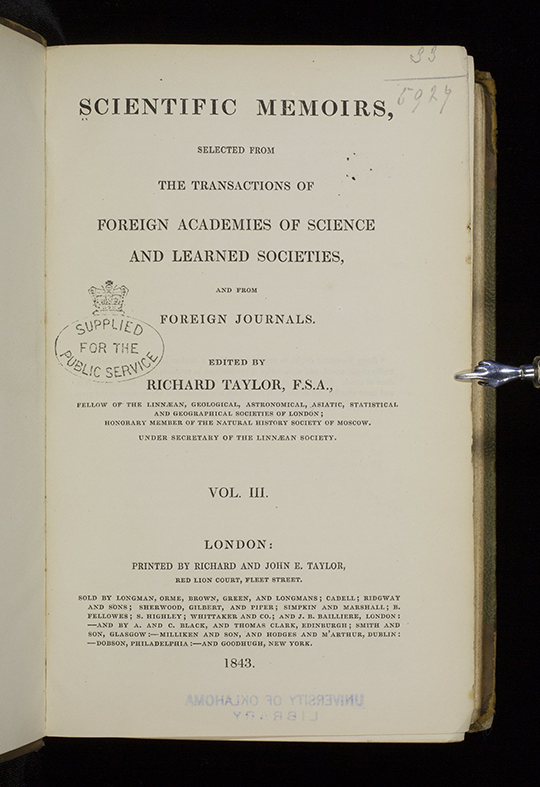
Lovelace prefaced her translation with references to papers and correspondence that helped readers understand the development of the analytic engine.
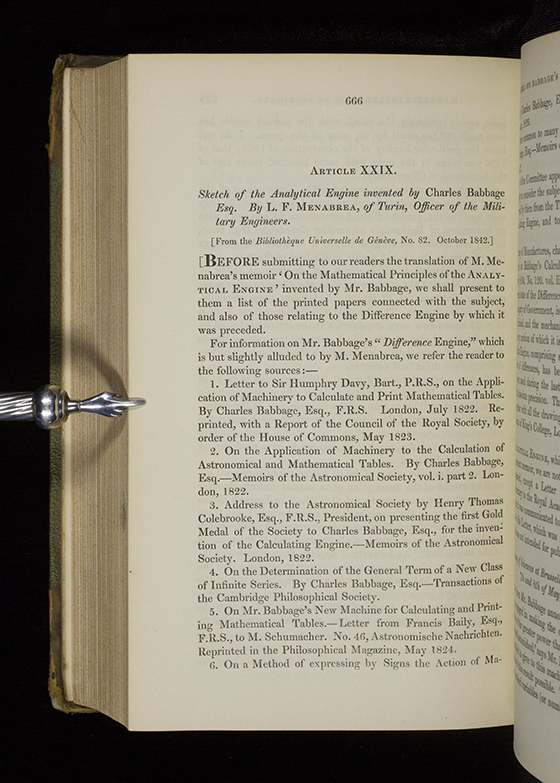
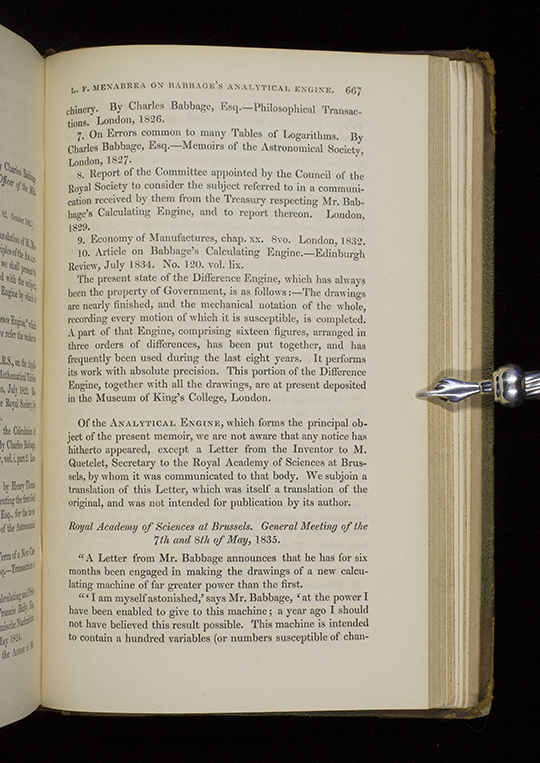
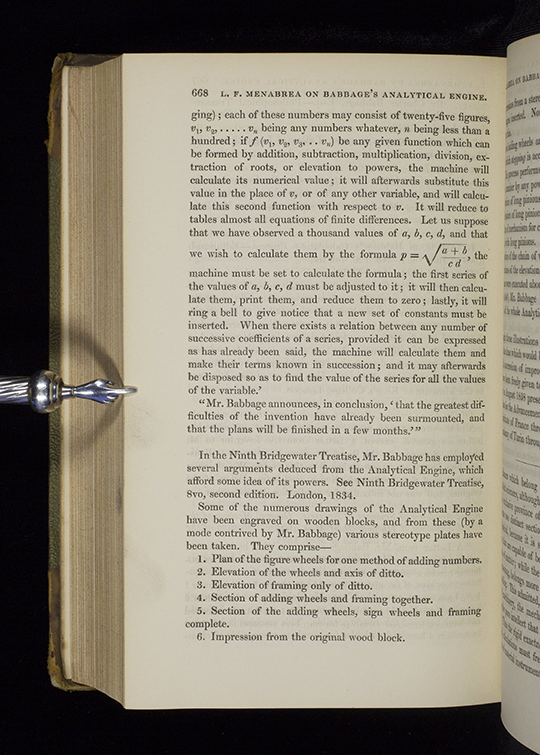
In her “Notes,” Lovelace explained how Babbage’s “analytical engine,” if constructed, would be a programmable computer rather than merely a calculator. It would take input from punch cards and produce novel results by executing diverse step-by-step mechanical operations. The mechanical operations she described are functionally equivalent to the conditional branching, looping, and parallel processing operations of early electronic computers. Here is the beginning of the “Notes”:
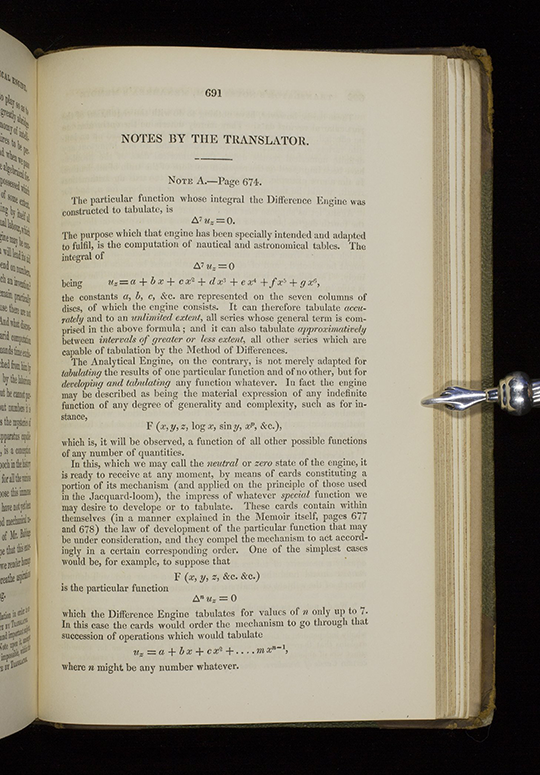
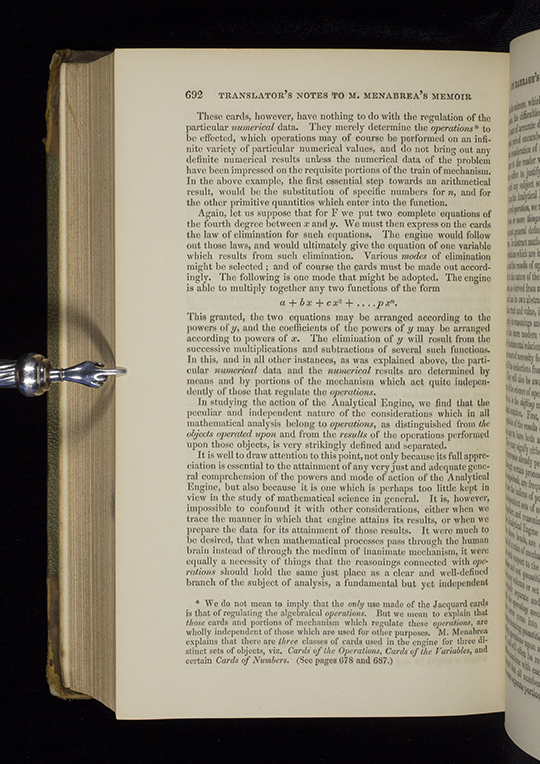
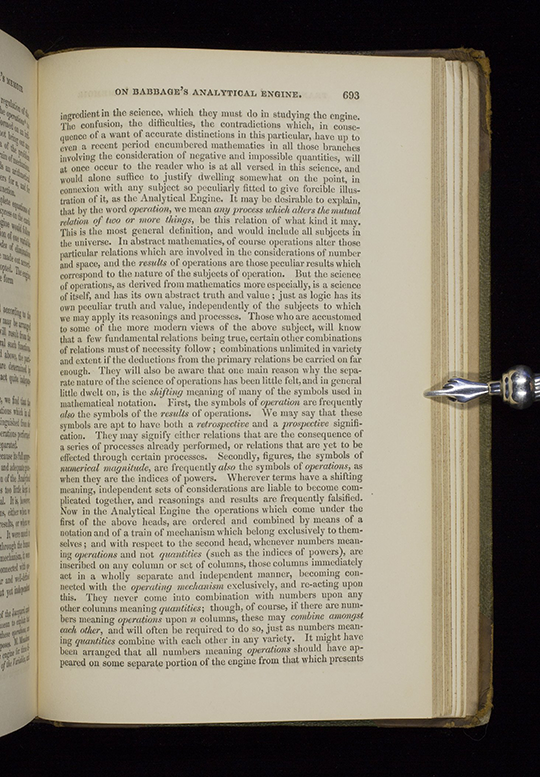
The translator and commentator remains anonymous until the last page of discussion where Augusta Ada Lovelace modestly left her initials "A. A. L." Unfortunately, an apparent type-setting error resulted in her identification being printed as "A. L. L."
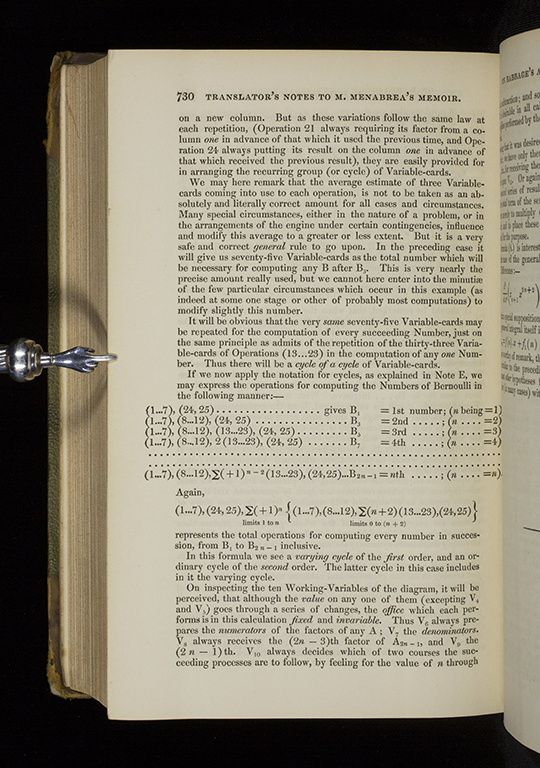
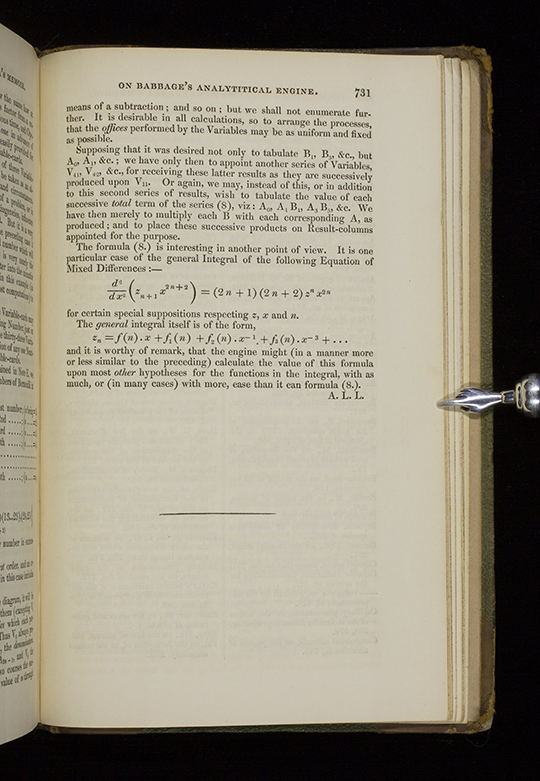
The images above are presented courtesy of the History of Science Collections, University of Oklahoma Libraries.
Frank J. Swetz (Pennsylvania State University), "Mathematical Treasure: Ada Lovelace's Notes on the Analytic Engine," Convergence (May 2019)




